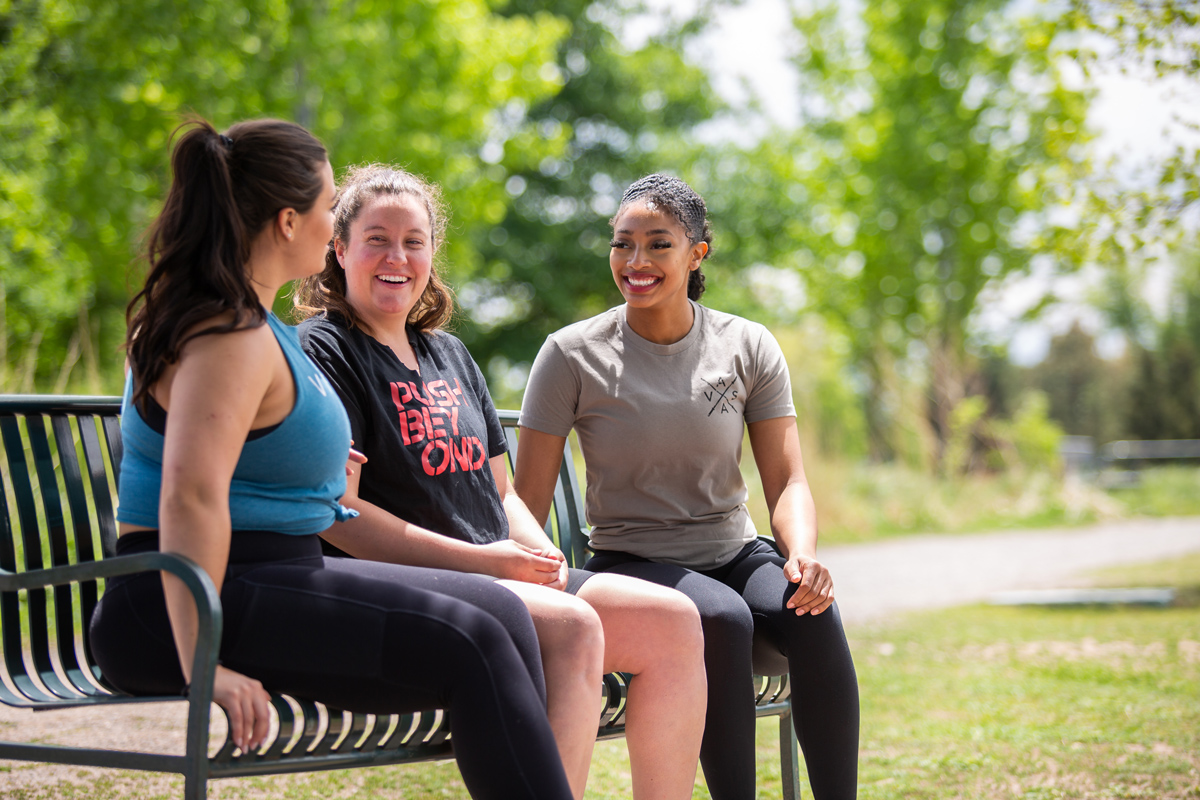The Mental & Physical Benefits of Gratitude
A few years ago, superstar athletes like Michael Phelps and Simone Biles began championing mental wellbeing, and conversations about and resources for mental health are more prevalent than ever before. The key to a great life means having both a healthy body and a healthy mind. One simple place to start to improve your mind and mood? Be grateful!
GRATITUDE MAKES YOU HAPPY
Telling others how much they mean to you and how much you appreciate them creates positive emotions and feelings of pleasure and contentment. Studies show people who frequently express gratitude have a more positive outlook on life, feel more loved, and have stronger connections to others.
There’s science behind it, too. “Expressing gratitude can positively change your brain,” says Kristin Francis, MD, a psychiatrist at Huntsman Mental Health Institute. “It boosts dopamine and serotonin, the neurotransmitters in the brain that improve your mood immediately, giving you those positive feelings of pleasure, happiness, and well-being.”
When you feel happy and confident, research shows people are more likely to be vulnerable with others, offer emotional support and assistance, and forgive more willingly. Being grateful is easy and positively impacts the people around us.

GRATITUDE REDUCES STRESS, ANXIETY, AND DEPRESSION
People who show gratitude and appreciation typically have reduced levels of cortisol, the stress hormone, have stronger heart functionality, and are more resilient to emotional setbacks and negative experiences—all resulting in the ability to handle stress better.
“When we acknowledge the small things in life, we can rewire our brain to deal with the present with more awareness and broader perception,” Francis says. “By reducing stress, gratitude reduces depression and anxiety. Keeping a gratitude journal or consistently verbalizing gratitude can help manage negative emotions like guilt and shame.”

GRATITUDE IMPROVES PHYSICAL HEALTH
Grateful people tend to be healthier than those who are not. When gratitude is practiced, the hormone oxytocin is released, which expands blood vessels, reduces blood pressure and inflammation, and protects your heart. Additionally, oxytocin helps us feel more connected to others, and when we have strong networks of community, we live longer and healthier lives. Studies also show grateful people eat healthier and exercise more often, leading to higher energy levels, better sleep, and a stronger immune system. And, they are less likely to abuse drugs or alcohol.
SIMPLE & EASY WAYS TO START A GRATITUDE PRACTICE
There are simple and easy ways you can incorporate gratitude into your daily or weekly routines:
- Write a thank you letter: You don’t even have to send it, simply putting pen to paper and acknowledging how some helped you.
- Gratitude Journal: There are numerous inexpensive journals you can buy with prompts and questions to help guide your thoughts
- Meditate: Spend a few minutes at the end of each day picking three things you’re thankful for.
- Small acts of kindness: Do something nice for a friend or stranger and see how it brightens their day, and yours!
SUBSCRIBE TO OUR BLOG
Enter your email to start receiving our blog emails!









